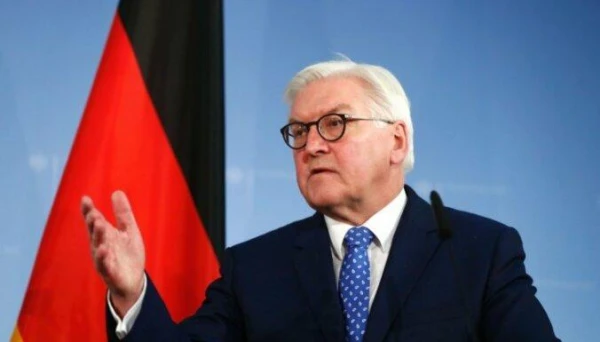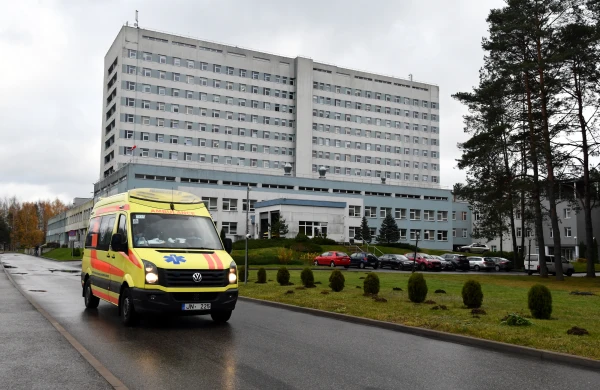
Speaker of the Bundestag Klöckner called Germany the "brothel of Europe." Her words sparked a discussion about the regulation of prostitution in the country. Klöckner advocates for the "Nordic model." About its essence and the debates - at DW.
Is Germany really the "brothel of Europe"? With this publicly expressed assessment, Chairwoman of the Bundestag Julia Klöckner provoked a debate about how the country should regulate the field of prostitution in the future. In a speech delivered on Tuesday, November 4, Klöckner, who represents the conservative Christian Democratic Union (CDU), criticized the current German legislation in this area. According to her, it does not provide adequate protection for prostitutes.
"I am firmly convinced that we must finally ban prostitution and the purchase of sexual services," emphasized Klöckner, immediately receiving support from her party colleague Nina Warken. "Like other countries, Germany needs a legally enshrined ban on the purchase of sex services by clients (prostitutes. - Ed.)," Warken stated to the Rheinische Post. "Prostitutes must remain outside criminal prosecution and receive comprehensive assistance to exit this activity."
How is Prostitution Regulated in Germany?
Prostitution is legalized in Germany. The Prostitution Act (Prostitutionsgesetz), which came into force in 2002, no longer considers this type of activity immoral but recognizes it as a legal service. Thus, those involved in it have the right for the first time to legally demand agreed payment for the services rendered.
In 2017, the law on the protection of persons engaged in prostitution (Prostituiertenschutzgesetz) was adopted - aimed at further improving their legal and social status. According to the law, such individuals are required to register with government authorities, and brothels must obtain a license to operate this type of business. This is granted only if certain minimum requirements for safety, hygiene, and facility equipment are met.
Criticism of Legislation Regulating Prostitution in Germany
Despite the legalization of prostitution in Germany, related crime, according to critics of the current regulations, has not decreased and, in some cases, has even increased, as this legalized form of activity can serve as a cover for criminal organizations. This primarily concerns the worsening situation with human trafficking and forced prostitution, as noted in the annually published "Federal Report on Human Trafficking."
As of the end of 2024, according to the Federal Statistical Office, there were 32,300 registered sex workers in Germany, of which only 5,600 hold a German passport. Every third prostitute comes from Romania (11,500 individuals), and another 3,400 are Bulgarian.
However, experts are confident that the figures provided do not reflect the real picture, as a significant number of prostitutes engage in this activity without registering anywhere. Therefore, most expert estimates are much higher - ranging from 200,000 to 400,000 prostitutes, with some even speaking of a million.
It is assumed that among them, there is an extremely high proportion of foreign women with insufficient knowledge of the German language, who are poorly aware of their rights and have virtually no access to medical care and support programs. The overwhelming majority of such women engage in prostitution out of necessity - either due to poverty or because they are forced to do so by pimps.
What is the "Nordic Model" of Prostitution, and Where is it Applied?
Critics of the legislation adopted in Germany in this area argue that the legalization of prostitution has created a market for sexual services with extremely low prices, which attracts criminals. This is why Julia Klöckner and Nina Warken have once again advocated for a ban on the purchase of sex and the introduction of the so-called "Nordic model" of prostitution. Debates about the feasibility of such a step have been ongoing for many years.
The very name "Nordic model" comes from the fact that it was first applied in Sweden in 1999 and in Norway in 2009. Later, it was legally enshrined, among others, in Iceland, Canada, France, Ireland, and Israel. The model prohibits the purchase of sexual services and organized mediation in their provision - but not their direct sale. In other words, clients and pimps are subject to criminal prosecution, while the prostitutes themselves are not.
At the same time, this model offers comprehensive support for those engaged in this field and exit programs. The purchase of sex services is punishable by fines, and in Sweden, in the worst case, even imprisonment for up to a year. Norway even prosecutes its citizens for purchasing sex services abroad.
What are the Arguments For and Against the "Nordic Model" of Prostitution?
Critics of the "Nordic model" view prostitution more as a form of work and seek to strengthen the rights of prostitutes so that they can independently and voluntarily engage in their activities. In their opinion, forced prostitution can be combated by strengthening the rights of victims. Critics also want to destigmatize prostitution and warn that the criminalization of purchasing sex services will push prostitution even further into the illegal and less protected sphere, such as the digital space.
Supporters of the model argue that a large part of prostitution already exists in a hidden form, in a kind of "parallel" social reality. In their view, prostitutes should not be additionally punished for being forced into this activity. Such decriminalization could rather encourage them to report clients to the police or seek legal recourse, as they would then have the right to protection and assistance. If buyers of sex services are at risk of criminal punishment, this would lead to a reduction in the level of prostitution overall.
It is no coincidence that in countries that have implemented the "Nordic model," supporters note, the number of both prostitutes and their clients has significantly decreased. Authors of a recently published study from the University of Tübingen concluded that the adoption of this model also contributes to "a long-term objectively measurable reduction in the number of victims of human trafficking."
BVNM: One Law is Not Enough
However, the Federal Association of the "Nordic Model" (BVNM) warns that to improve the situation of individuals forced into prostitution, merely adopting the relevant law will not be sufficient. Comprehensive exit programs and significant strengthening of victims' rights are necessary.
The BVNM believes that funding for comprehensive social support must be provided, allowing victims to secure their own housing, psychological assistance, and education. In addition, funding for prevention and education is important, as well as consistent criminal prosecution of pimps and human traffickers to reduce the market for prostitution, the BVNM summarizes.













Leave a comment